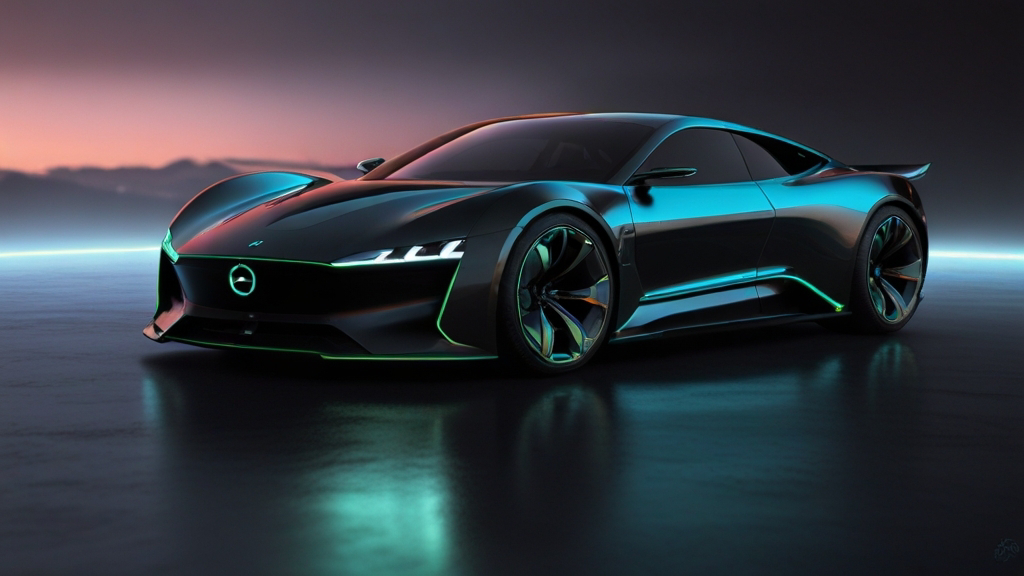Exploring the Challenges: Why Qatar Hasn't Produced an Electric Sports Car Yet
In the realm of automotive innovation, Qatar stands as a beacon of progress and sustainability, renowned for its ambitious initiatives and forward-thinking vision. Yet, despite its prowess in various industries, the production of an electric sports car has remained elusive. Delving into the intricacies of this issue reveals a myriad of challenges that Qatar must navigate before realizing this ambitious endeavor.
One of the primary obstacles Qatar faces in producing an electric sports car lies in the complexities of automotive manufacturing. Developing a vehicle from scratch demands a vast array of resources, expertise, and infrastructure, which may not be readily available within the country. While Qatar has made significant strides in diversifying its economy and investing in cutting-edge technology, the automotive sector poses unique challenges that require specialized knowledge and experience.
Furthermore, the transition to electric vehicles necessitates a fundamental shift in the automotive industry's supply chain and manufacturing processes. From sourcing sustainable materials to establishing efficient production facilities, Qatar would need to overcome numerous logistical hurdles to bring an electric sports car to market. This transformation requires substantial investment and strategic planning, factors that Qatar must carefully consider before embarking on such a venture.
Another critical consideration is the competitive landscape of the automotive industry. Qatar would be entering a market dominated by established players with decades of experience and brand recognition. Competing against industry giants requires more than just technological innovation; it demands a comprehensive understanding of consumer preferences, marketing strategies, and global trends. While Qatar possesses the resources and ambition to challenge the status quo, breaking into the automotive market requires a calculated approach and a long-term commitment.
Moreover, the development of an electric sports car entails significant research and development efforts to ensure performance, safety, and reliability. From battery technology to vehicle dynamics, every aspect of the car must undergo rigorous testing and refinement to meet the highest standards of excellence. While Qatar has demonstrated its ability to invest in research and innovation across various sectors, the automotive industry presents unique technical challenges that require specialized expertise and collaboration with international partners.
Additionally, regulatory considerations play a crucial role in shaping the feasibility of producing an electric sports car in Qatar. The automotive industry is subject to a myriad of regulations and standards governing vehicle safety, emissions, and performance. Adhering to these regulations requires extensive testing, certification, and compliance measures, which can be both time-consuming and costly. Qatar would need to work closely with regulatory bodies and industry stakeholders to navigate these requirements effectively.
Furthermore, the success of an electric sports car depends not only on its technological prowess but also on its market viability and consumer acceptance. While there is growing demand for electric vehicles worldwide, the market for sports cars represents a niche segment with unique preferences and expectations. Understanding the needs and desires of target consumers, as well as anticipating future trends and disruptions, is essential for positioning an electric sports car for success.
In addition to technical and regulatory challenges, Qatar must also consider the broader economic and geopolitical implications of producing an electric sports car. The automotive industry is inherently global, with supply chains, markets, and competitors spanning continents. Qatar's decision to enter this arena would have far-reaching consequences, both domestically and internationally, requiring careful consideration of geopolitical dynamics and market dynamics.
Despite these challenges, Qatar possesses the ambition, resources, and ingenuity to overcome obstacles and realize its vision of producing an electric sports car. By leveraging its strategic partnerships, investing in research and development, and fostering an environment of innovation and entrepreneurship, Qatar can position itself as a leader in the automotive industry's transition to sustainable mobility.
In conclusion, while Qatar has yet to produce an electric sports car, the challenges it faces are not insurmountable. By addressing technical, regulatory, economic, and geopolitical considerations, Qatar can lay the groundwork for a future where innovation, sustainability, and excellence converge on the open road. With determination, perseverance, and strategic planning, Qatar can pave the way for a new era of automotive excellence, where electric sports cars proudly bear the mark of Qatari ingenuity and ambition.








0 Comments